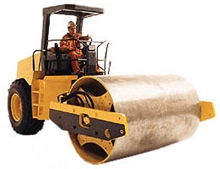Government/Policy

March 19, 2019
IHS Report Highlights Damage from U.S. Tariffs
Written by Sandy Williams
U.S. tariffs on imports of steel, aluminum and Chinese goods have “an unmistakable negative impact” on the economy, says a new report from IHS Markit.
The report, “The Economic and Industry Impact of Protectionism Tariffs on the Off-highway Equipment Sector,” estimates that Section 232 and Section 301 tariffs will result in an average GDP loss of $29 billion per year for the next 10 years, mainly from the direct effect of higher prices.
IHS Markit economists also found:
- GDP growth will remain on an upward trajectory, but will be negatively impacted by as much as -0.2 percent on a year-on-year basis over the next two years.
- The tariffs will result in an average of 26,000 jobs lost per year over the next 10 years.
- Consumers will pay higher prices and reduce their real spending by $23 billion per year through 2027.
The impact on industries will be profound, including:
- Price increases for steel-, iron-, and aluminum-based inputs in the supply chain will have a negative impact on many downstream industries.
- Production in the machinery and equipment, computer and electronics, and electrical equipment sectors be significantly reduced.
- Agriculture equipment will see lost sales of about $1.1 billion in 2019 and 2020 and more than $4 billion for the 10-year period. Losses are tied to lower crop receipts, especially in the grain sector that is expected to lose about $13 billion in 2019 and 2020 from China retaliation measures.
- Tariffs will increase the cost of producing U.S. agriculture and construction equipment by 6 percent and increase production costs for mining equipment by 7 percent.
- Sales of construction equipment will be directly hurt, lowering the industry’s domestic output by an average of almost $500 million per year over the next 10 years.
Higher steel prices will increase production costs for construction equipment, raising prices for purchasers and lower demand. “Construction activity will be negatively impacted as the higher cost of steel feeds through the supply chain and increases construction costs,” the report states.
Said IHS Markit, “While imports will decline, and thus incrementally boost GDP, the effect from higher U.S. producer and consumer prices, as well as a negative impact on world trade, will more than offset any boost to the domestic economy from an improvement in the U.S. balance of trade. One problem is that domestic and other global producers lack the capacity to fully replace the targeted imports, and many have already raised their prices in response to the tariffs.”
“This report shows that tariffs continue to take a toll on U.S. equipment manufacturers, who will pay significantly more to manufacture equipment in the United States in the coming years. Tariffs on steel, aluminum and Chinese imports, as well as the potential for additional tariffs, are driving up the cost of production, delaying capital investments and impeding job creation for our more than 1,000 member companies,” said Dennis Slater, president of the Association of Equipment Manufacturers (AEM).
AEM notes that there are currently tariffs on $250 billion of Chinese imports as a result of Section 301—an amount equal to half the total of goods imported into the U.S. from China in 2017.
Although AEM supports free and fair trade, Section 232 and 301 tariffs are putting equipment manufacturers at a competitive disadvantage in the global marketplace, says the association.
“While we agree with the Trump administration’s concerns regarding China’s unfair trade practices, including weak intellectual property protections, restrictions on foreign investment, and policies that limit competition, tariffs only hurt America’s businesses, workers and families,” said John Garrison, chairman of the board, president and CEO of Terex Corp. and an AEM board member. “We urge the Trump administration to negotiate solutions to these long-standing issues with China, de-escalate economic tensions, and remove broad unilateral tariffs.”







